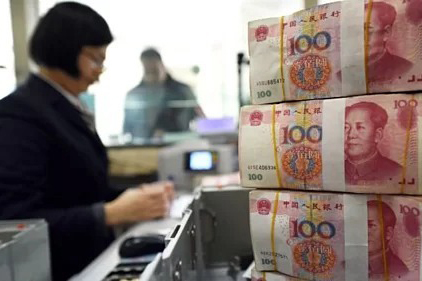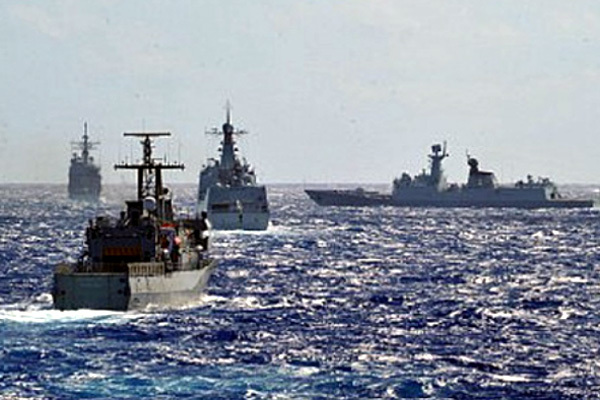2021 marks five years after the Permanent Court of Arbitration (PCA)'s ruling.
At the opening session of the 75th UN General Assembly, the Philippine President said more countries support the ruling. It is the victory of reason over recklessness, of law over attempt at causing trouble, of friendship over ambition. This - as it should be - is the majesty of the law, he said.
 |
|
A hearing at the Permanent Court of Arbitration (PCA) in The Hague (Netherlands) on the Philippines' case against China. Photo: PCA
|
By explaining that features in Truong Sa (Spratlys) do not have their own exclusive economic zone and continental shelf, the ruling has contributed to minimizing future delimitation disputes as well as the extent of overlapping maritime zones. The countries surrounding the East Sea have the right to preserve their exclusive economic zones and continental shelves determined from land in accordance with the United Nation Convention on the Law of the Sea 1982 (UNCLOS) and the principle of "land dominates the sea".
China has launched an all-out and drastic campaign not to recognize, not to be present and not to enforce the ruling. The ruling sparked Malaysia's claim to the continental shelf boundary beyond 200 nautical miles to the north which was submitted to the Commission on the Limits of the Continental Shelf (CLCS) in December 2019 and sparked a war of diplomatic notes between the countries.
Differentiation of opinion
Since late 2019, there were more than 30 diplomatic notes, letters and statements from 13 countries inside and outside the East Sea region referring to positions and views on a number of legal issues in the East Sea (internationally known as the South China Sea). This war of notes divides the views of the countries.
China’s assertions include: having historical rights since the 2nd century BC; features in the East Sea all have territorial waters, exclusive economic zones and continental shelves; it is customary to apply archipelagic baselines to the offshore archipelagos of the coastal state; UNCLOS does not solve all the issues of the law of the sea, needs to be changed, and the ruling has exceeded its jurisdiction, so it is invalid.
On the other side, all countries inside and outside the region support the following: recognizing the unity and universality of UNCLOS in providing the necessary legal framework for all activities at sea and ocean. UNCLOS is the legal basis for settling maritime disputes; The PCA's ruling dated 12 June 2016 is final and binding on the claimants - the Philippines and China; The features in the Spratlys have a territorial water of only 12 nautical miles; freedom of navigation and overflight in the East Sea should be respected;
The archipelagic baselines methods are applicable only to archipelagic states and they cannot be unlawfully applied to the offshore islands of the coastal states; land reclamation activities and all other forms of man-made transformation do not alter the legal status and classification of maritime features under UNCLOS; claims related to the exercise of “historic rights” in the East Sea are inconsistent with international law and UNCLOS.
Judgment and pressure from the international community has caused some impact on China. This country reduced the mention of the 9-dash line and replaced it with a new illegal claim called "Four Sha". Foreign Minister Wang Yi stated that all accusations that China claims all the seas within the nine-dash line such as internal waters and territorial waters are deliberately misleading China's position.
China seeks to interpret UNCLOS in its favor or misinterpret international law, evade, and ignore unfavorable provisions. This is not in line with the spirit of "accepting the whole package" that UNCLOS requires member states to commit to.
The PCA's ruling and the war of notes prove that the legal battle is becoming increasingly fierce, and plays a key role in resolving disputes in the East Sea, in the struggle for a rules-based order, not the rule of "force creates justice".
Freedom of navigation and internationalization of the East Sea conflict
 |
|
The German frigate Bayern entered the East Sea. Photo: VOI
|
The US and its allies still hold aloft the banner of respecting freedom of navigation as a fundamental element of the "free and open Indo-Pacific" strategy.
The frequency of US freedom of navigation operations in the East Sea has steadily increased. Under the Obama administration, the US conducted only two freedom of navigation operations (FONOPs) in 2015 and 2016. Under Trump, FONOPs increased steadily with four times in 2017, six times in 2018, eight times in 2019 and nine times in 2020. In 2021, in the first month of taking office, the Biden administration conducted its first FONOP activity.
The US Navy deployed a total of four carrier strike groups in 2021: Carl Vinson, Theodore Roosevelt, Nimitz and Ronald Reagan. The amphibious ships USS Makin Island and USS Essex passed through the East Sea 11 times.
The US deployed B-52H and B-1B bombers in disputed waters 14 times, and also sent 11 submarines to the East Sea. This was also the first year that a US nuclear submarine was damaged due to a collision with a foreign object in the East Sea.
2021 was also the first year that Germany, Great Britain, France and Australia deployed joint exercises in the region and conducted freedom of navigation operations in the East Sea.
In September 2021, the European Council adopted a resolution on the Indo-Pacific, identifying seven priority areas of action: Sustainable and inclusive prosperity, green transformation, ocean governance, partnership and digital governance, connectivity, security and defense, and human security.
In terms of security and defence, the EU will promote an open, rules-based regional security architecture, including capacity building and increased naval deployment of EU countries to the region.
The G7 Summit issued a Joint Statement on June 13, 2021. Unlike the last meeting of the group in 2018 in Canada, the Joint Statement opposed any unilateral actions to change the status quo, and contained many strong criticisms of China.
The G7 discussed an infrastructure development plan for developing countries to compete with the Belt and Road initiative, under the name “Build Back Better World” (B3W).
In the first six months of the year, Japan mentioned the East Sea 37 times, of which 18 times was about China's Coast Guard Law, while in the last six months, Japan had mentioned the East Sea about 15 times.
2021 was the year of the birth of two new strategic initiatives: the QUAD (Quadrilateral Security Dialogue) Summit was convened and the establishment of the AUKUS – an alliance of Australia, the United Kingdom and the United States, promising strong linkages and deep engagement of countries in the East Sea in the name of protecting freedom of navigation and trade.
The East Sea situation in 2022
The situation in the East Sea will continue to be tense due to US-China competition. ASEAN needs the presence of US and allied military forces to ensure security and a rule-based order, and it also needs economic opportunities offered by China.
There will be more shuttle diplomatic efforts in the region. ASEAN countries are concerned with the emerging mechanisms but will try to maintain their central role, stay neutral and expect the US to increase investment in the region to balance its influence with China. The US has clearly shown its attitude about not joining the Comprehensive and Progressive Agreement for Trans-Pacific Partnership (CPTPP), and will have to find an appropriate economic cooperation mechanism with countries in the region soon.
More and more countries, especially small ones, are looking to international law as an effective tool to protect their legitimate interests. China is still implementing the "carrot and stick" policy, localizing the East Sea by domestic law, exerting pressure and promoting propaganda and exploitation, and finding ways to adjust UNCLOS to its advantage.
ASEAN needs to consider completing the negotiation for the Code of Conduct for the East Sea (COC) in 2022 for immediate political goals for a substantive, effective and long-term COC. A weak and nonlegally binding COC at the moment would allow China to continue to intimidate its neighbors in their own waters and destabilize peace and security in the East Sea.
A weak COC would contribute to legitimizing China's position and dominance in the East Sea and with ASEAN, allowing China to continue to undermine the rule-based order and the fruits of the PCA's ruling.
China will continue the presence of its coast guard and militia forces in the waters of other countries. This may trigger an arms race in the region. Indonesia and Malaysia have plans to upgrade their navy and air force. The Philippines plans to upgrade Thitu and neighboring islands. AUKUS can also stimulate the development of submarines and electronic warfare tools, UAVs, and MAVs in the region.
The East Sea is not only important to countries in the region but also plays an indispensable role in the global supply chain. Countries are increasingly interested and want to be present more to protect their interests. There will be many free-flowing warships and investors from all over the world. There will be many political alliances in the region.
Countries need to be alert and uphold the unity of UNCLOS as the only and most basic legal basis for peaceful settlement of disputes in the East Sea, contributing to stability and prosperity in the region.
Nguyen Hong Thao

The essence of China's 'soft power'
American expert on international relations Joseph Nye said that the power of a country, besides "hard power" including military force, population, geography, and strategic resources, also includes "soft power".

Five years of PCA's ruling: no such thing as ‘power creating justice’
The Permanent Court of Arbitration (PCA)'s ruling has been an irrevocable part of history. It will act as a “guide” for countries involved in the struggle for an order based on rules and not on “force creating justice.”